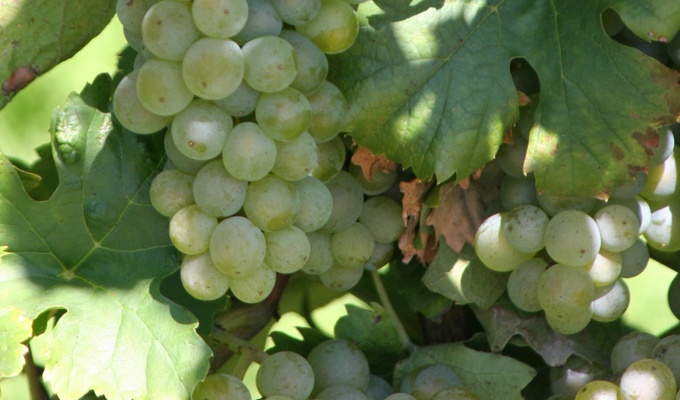Müller-Thurgau is a white grape variety which was created by Hermann Müller from the Swiss Canton of Thurgau in 1882 at the Geisenheim Grape Breeding Institute in Germany. It is a crossing of Riesling with Madeleine Royale. It is used to make white wine in Germany, Austria, Northern Italy, Hungary, England, Australia, the Czech Republic, Slovakia, Slovenia, New Zealand, Canada, the United States, Belgium and Japan. There are around 22,201 hectares ) cultivated worldwide, which makes Müller-Thurgau the most widely planted of the so-called "new breeds" of grape varieties created since the late 19th century. Although plantings have decreased significantly since the 1980s, as of 2019 it was still Germany's second most planted variety at 11,400 hectares and 11.4% of the total vineyard surface. In 2007, the 125th anniversary was celebrated at the Geisenheim Grape Breeding Institute. Müller-Thurgau is also known as Rivaner, Riesling x Sylvaner, Riesling-Sylvaner, Rizvanec and Rizlingszilváni .
Müller-Thurgau
varietal

Contains, including ancestors:
Alcohol
Also known as:
Wikidata ID:
Q681670
Wikipedia title:
Müller-Thurgau
References:
Article content licensed under CC-BY-SA; original content from Wikimedia Foundation; image data under CC-BY-SA from Wikimedia Foundation
ID: 15097